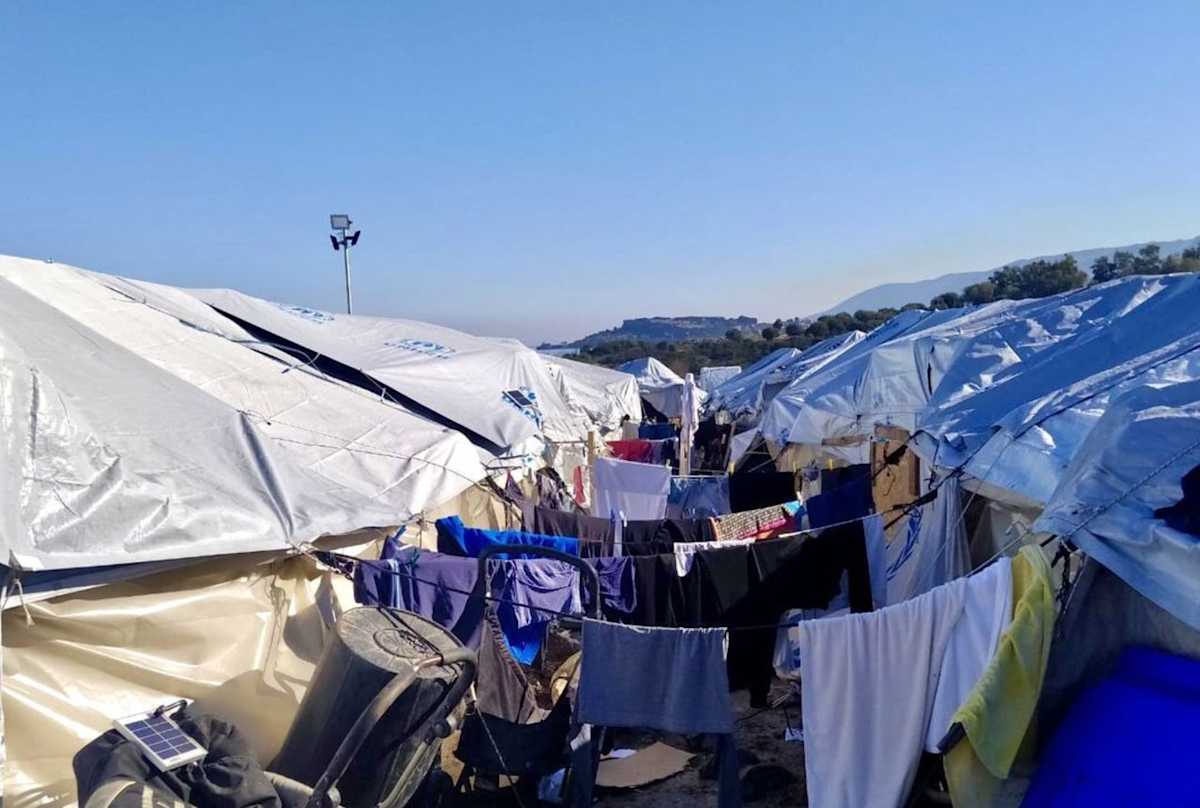In the immediate wake of the fire, the Greek government shocked human rights organisations with their decision to close two model facilities on Moria – Pikpa and Kara Tepe – that were providing essential care for the camp’s most vulnerable residents. Those receiving treatment from the centres were forced to move to ‘Moria 2.0,’ a new site created for victims of the fire with reported inadequate and unhygienic conditions. This move feeds into a broader context of the state de-funding, and at times abolishing, essential mental health services for refugees and asylum-seekers. In September 2018, clinical psychiatrist Dr Alessandro Barberio wrote an open letter for Médecins Sans Frontières (MSF), alerting readers to the high numbers of residents, including children, who were presenting extreme psychotic symptoms, such as suicidal thoughts and suicide attempts. A logbook written by a careworker in Moria’s supposedly ‘safe zone’ from the same period was discovered recently, which spoke of ‘serious problems with the rats, and danger of infusion of diseases to the beneficiaries and the personnel.’
Earlier this year, MSF declared a mental health ‘emergency’ among children and young adults on the island of Lesbos, with suicidal ideation and attempts heavily increasing since the fire. Just yesterday, Greek officials announced that an Afghan woman who attempted to take her own life by self-immolation will face charges of arson. This incomprehensible context is a direct consequence of the EU’s broader project of creating ‘hotspots’: sites of humanitarian government intervention partly brought about by the violence of territorial and exclusive borders. In a podcast with The Funambulist, Sinthujan Varatharajah discusses how camps operate as extraterritorial spaces of exclusion and control which perpetuate a logic of containment. Looking ahead, the EU Commission has received widespread criticism for its plan to build a new camp on Lesbos; its projected capacity for only 5,000 people will not be big enough to ensure dignified conditions.
For ways to support the ongoing crisis at Moria, and the island of Lesbos more broadly, please consider donating to Kitrinos Healthcare, providing direct medical aid and psycho-social support to refugees and vulnerable migrants, and Refugee Support Aegean, offering free legal support to refugees experiencing human rights violations.
